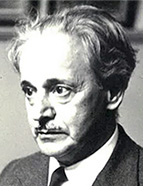

Having been prepared at home to obtain his primary education qualification by his father, an official in the Ministry of Finance, he went on to study at the Castelo Branco Secondary School and graduated in History from the Curso Superior de Letras [Art and Humanities Higher Education Degree] in 1910 with a thesis entitled História (Significado e Função) [ History (Meaning and Function) ] .
In this academic exercise, where he immediately displayed the assertive, argumentative and polemical style that he would cultivate until the end, probably foreseeing his admittance into the teaching profession and taking into account the reform process being carried out by the recent republican regime, he provided a theoretical basis, in terms of “ intrinsic value’, “ didactic criteria ” and “ pedagogical value ” ( OF I , p. 10), for a proposal for the structure of the H istory curriculum in secondary education . This proposal, deliberately moving away from a nationalist inclination and guided by a conception of H istory as genetic knowledge of the “strong facts ” that have been driving the collective life of humanity over time ( OF I , p. 24), begins with Eastern Antiquity, follows the chronology of the great epochs and only provides for the introduction of the History of Portugal, in a generic way, in the fifth grade , to be taken up again, more specifically, in the seventh and last grade ( OF I , p. 61).
After five years of secondary school teaching, in 1915 , he was appointed Assistant in the History group of the institution from where he had graduated, for which he submitted a dissertation entitled A Equação da História [ The Equation of History] . With the approval of his Doctoral Thesis in Philosophy in 1922, A Impensabilidade da Negativa [ The Unthinkability of the Negative ] , he moved to the Philosophy section of the School of Arts and Humanities of the University of Lisbon as a Professor, becoming Full Professor in 1930 and serving as Director from 1936 to 1940 .
This work is financed by national funds through FCT - Foundation for Science and Technology, I.P, in the scope of the projects UIDB/04311/2020 and UIDP/04311/2020.
